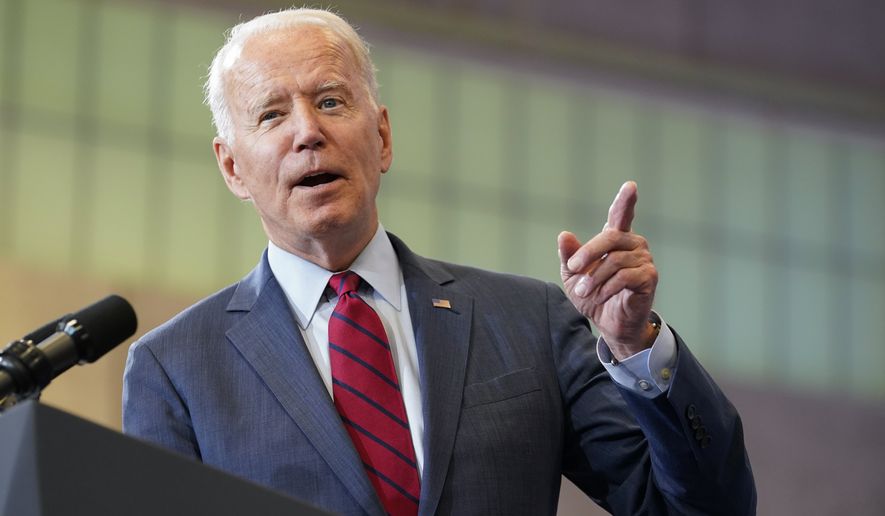OPINION:
As President Biden sits down with Afghanistan President Ashraf Ghani for their first face-to-face meeting today, one topic will likely not be broached – Iran’s growing influence in the region.
Mr. Biden’s decision to pull U.S. troops out of Afghanistan leaves a huge power vacuum in the region, which will most likely be filled by Iran. However, this is one topic Mr. Biden may look to avoid, as his administration is attempting to rejoin the failed 2015 Iranian Nuclear Deal and has gone to great lengths to appease the world’s No. 1 state sponsor of terrorism.
Andrew Watkins, a senior Afghanistan analyst with the International Crisis Group, told RadioFreeEurope, the departure of U.S. and NATO forces will certainly leave something of a power vacuum, giving Tehran more space to seek influence both with Afghan officials and other power brokers in the country, including the Taliban. After the U.S. withdrawal in Iraq, Iran was quick to increase its military presence there, creating a virtual satellite state.
Iran’s Foreign Minister Mohammad Javad Zarif described the removal of U.S. troops in Afghanistan as a “positive move.” For, a U.S. presence in Afghanistan has always given Iran anxiety, fearing U.S. military strikes against its nuclear facilities, and giving the U.S. easier proximity to overthrow the Iranian regime.
A U.S. withdrawal from Afghanistan also gives the Iranians leverage in the Biden administration’s ongoing nuclear peace talks, in that the U.S. will become more dependent on Iran to foster peace in the region.
In doing so, Iran has been cultivating ties with the Taliban. Earlier this year, the Taliban met with high-ranking Iranian officials in Tehran, with the Taliban’s deputy leader, Mullah Baradar, calling the meeting “part of Tehran’s policy to reach out to Afghan parties in the Afghan peace process.”
U.S. and Afghan officials have accused Iran of providing the Taliban with money, weapons and explosives, which of course, Iran has rejected. Since the Biden administration’s decision in April to pull out all U.S. troops before Sept. 11, the Taliban has fought daily battles within Afghanistan and claimed to have captured more than 50 of 370 Afghan districts.
Yet, it’s in Iran’s best interest to have a stable and peaceful Afghanistan, as it shares a border with the country and is home to about 3 million Afghan refugees. In addition to talking with the Taliban, Iranian officials have maintained close ties with Afghanistan’s Tajik and Hazara populations to gain political influence in Kabul.
It’s also been building pro-Iranian schools, with thousands of Iranian books teaching the virtues of the Islamic republic, mosques and media centers within the country to peddle soft influence with the Afghan population.
Iran is no doubt muscling its way into Afghanistan, ready to step into the power vacuum left by the U.S. It’s unclear if Iran’s ambitions in Afghanistan are to ensure any government that prevails will not threaten its direct interests, or if it has a more nefarious goal in mind, like using the Taliban as another proxy force in the region and profiting off the country’s illicit drug trade.
One thing is for certain: Iran’s Foreign Ministry is building cultural and political influence in the region, as its Islamic Revolutionary Guards Corps quietly sows chaos. According to a report by The New York Times, Iran “has sent squads of assassins, secretly nurtured spies and infiltrated police ranks and government departments,” in Afghanistan, especially in its western provinces, where it shares a border.
“Iran is constantly working in the shadows. The goal, Afghan officials say, is to stoke and tip local power struggles in its favor, whether through bribery, infiltration or violence,” The Times reported.
There’s no doubt, the U.S. exiting Afghanistan is a win for the Iranians – and agreeing to working with the U.S. to maintain peace in the region will become a key bargaining chip for them in renegotiating the Iranian nuclear deal.




Please read our comment policy before commenting.